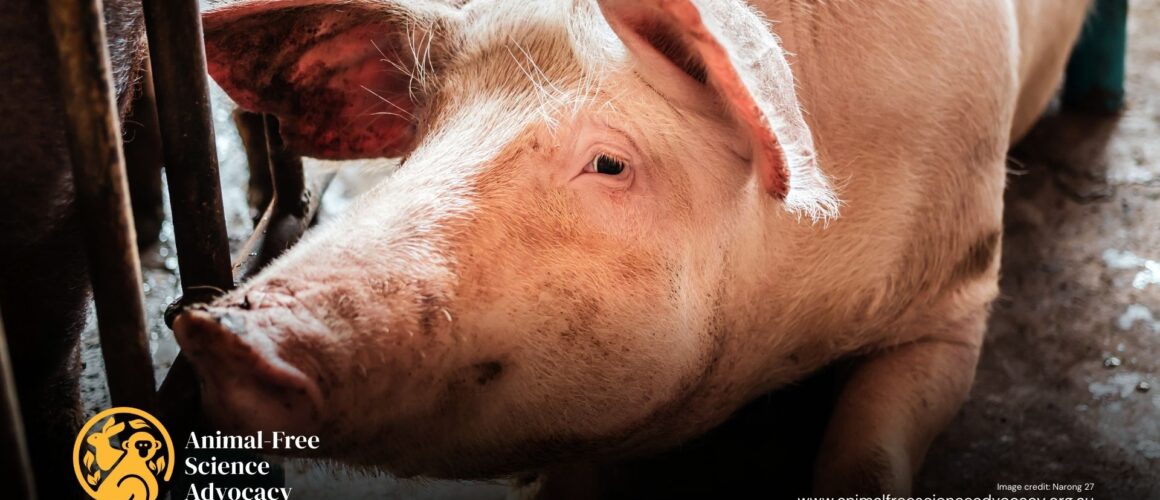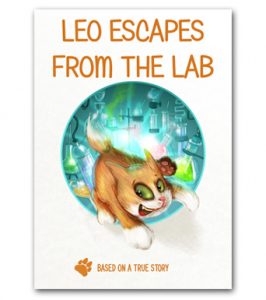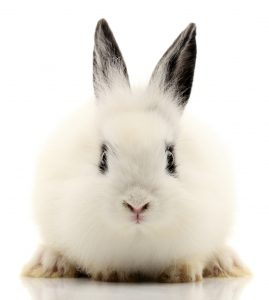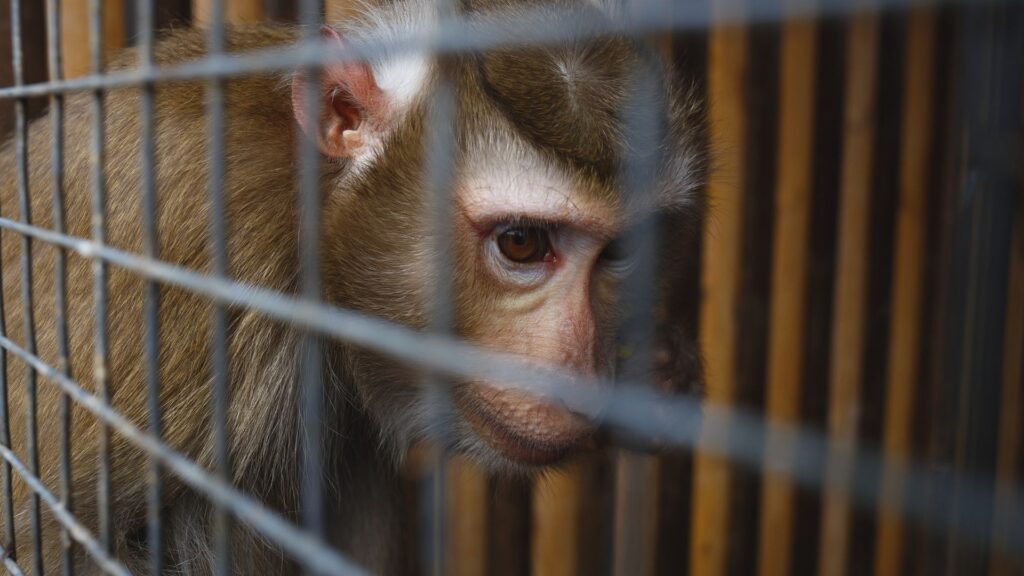Publication of “Leo escapes from the lab”
Leo is an ex-laboratory cat who now serves as an ambassador to the millions of animals used in research every year. He has become somewhat of a ‘celebricat’ with his own Facebook page and an adoring fan base that grows day by day.
With the assistance of some amazingly talented volunteers, we have created “Leo escapes from the lab” – a children’s (true) storybook that is now available via Amazon.
The wonderful illustrations that have been designed for this book truly capture the essence of Leo, his little sidekick Alfie, his big brother Rocky and the human characters he has met along his journey.
It is hoped that Leo’s story will provide children with an understanding of how wrong animal experimentation is, and serve to influence future generations of researchers, donors and philanthropists
All profits raised from the sale of the books goes toward HRA’s work to end animal experiments.
Animal experiments – debunking the myths
To assist people’s understanding of a perceived complex issue, Humane Research Australia broadcast of a six-part series about the use of animals in research, featuring Dr Andrew Knight, DipECAWBM (WSEL), PhD, MRCVS, FOCAE and based on his critically-acclaimed book The costs and benefits of animal experiments.
The six part series consists of:
- Animal Experiments – a failing science
- Efficacy – accessing the utility of animal experiments
- Statistics and Regulation
- Non-animal Methods of Research – a more humane and scientifically valid option
- Humane Education – caring, not killing
- Working Together For Change
This information, suitable for schools, community groups and anyone who has an interest in animals, provides a professional rationale against the use of animals in research and is recommended viewing for anyone interested in ending the use of animals in research.
A message from Henry
Thanks to a generous and talented supporter (Matt Bottos at Hyperchromatics), the animated Henry* Rabbit was created to relay the important message of animal testing to a younger audience, via You Tube. (*Named after Henry Spira – considered one of the most effective animal advocates of the 20th century after challenging Revlon over their use of rabbits in cosmetics testing.)
WC9 – 9th World Congress on Alternatives and Animal Use in the Life Sciences.
Conducted tri-annually, this year’s world congress was held in Prague, Czech Republic and, was attended by a number of Australian delegates, including staff from Humane Research Australia (thanks to subsidies from Humane Society International and Anti Vivisection Union South Australia). The Congress covered a wide spectrum of issues including toxicology, ethics, primate use, retrospective analysis and non-technical summaries, journal reporting, cost/benefit analysis, regulation and acceptance of alternatives. Proceedings can be accessed here. The congress not only provided a valuable insight into the progress of alternative methods on an international level, but more importantly it provided an opportunity to network with world leaders in this area.
Pro Bono Billboards
As a not for profit organisation that does not have the resources to even contemplate extravagant advertising campaigns, we have been incredibly fortunate to have received the support of Octopus Media by way of donated advertising space on electronic billboards on prominent roads and intersections in Melbourne. This exposure – valued at $150,000 in total so far – is not something we could otherwise afford and so we’re immensely grateful to Octopus Media for providing these to us pro bono.
Lush Prize
HRA was fortunate enough to win the 2014 public awareness award from Lush Cosmetics, acknowledging our work to promote non-animal methods of research. The award was for GBP25,000 which will of course assist our work greatly, but it also allowed us to present our work to a London audience and provided us with great international exposure – both of HRA and Leo. See highlights of the ceremony here.
Edging closer to a ban on cosmetics testing
Our partnership with Humane Society International – the Be Cruelty-Free Australia Campaign – gained momentum when Senator Lee Rhiannon introduced a Private Members Bill in March, to ban the testing of cosmetics on animals and the sale of cosmetics that have been tested on animals.
Furthermore, following discussions with Be Cruelty-Free Australia, the Senate passed a cross-party Motion which urged the Australian Government to eliminate cosmetics animal testing. The motion was co-sponsored by Liberal Senator Anne Ruston, Greens Senator Lee Rhiannon, Labor Senator Lisa Singh, Nationals Senator Barry O’Sullivan, Palmer United Party Senators Glenn Lazarus and Zhenya Wang, Independent Senator Nick Xenophon, and Motoring Enthusiast Party Senator Ricky Muir.
We look forward to continuing to work with the Government and all parties to develop meaningful legislation that bans both animal testing and the sale of cosmetics products and ingredients tested on animals abroad, and in so doing puts Australia on the map as a country that says NO to cosmetics cruelty!
Launch of Through the Looking Glass campaign – seeking transparency in animal experimentation
Australians have a right to know what their tax dollars are funding, yet according to public opinion polls, few are aware that they are funding animal experiments. “Through the Looking Glass” was therefore launched calling for greater transparency and accountability via publication of ‘non-technical summaries’ and retrospective analysis as has recently been made compulsory in the European Union.
HCL App
The Humane Charities List is a web-based resource that donors can refer to in order to check whether they can safely donate to a health or medical research charity without inadvertently supporting animal experiments. Our app has been created to provide easy access to this list and iphone and android versions can be downloaded at Humane Charities.









